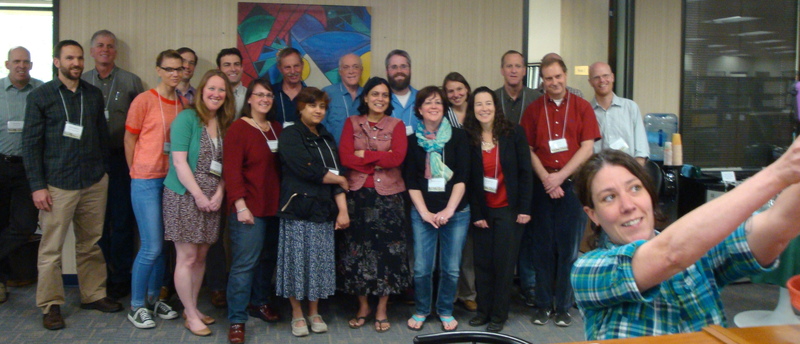
at the
American Institute of Mathematics, San Jose, California
organized by
Katie Fowler, Lea Jenkins, and Shawn Matott
Recent water crises in the agriculture intensive states of California and Kansas have highlighted the need for more effective strategies for managing resources needed for farming. For instance, recent studies on California agriculture estimate losses of nearly 1 billion dollars per year for 2015 and 2016, based on current and predicted weather patterns. Without changes to current water management strategies, the Kansas region is projected to experience almost complete aquifer depletion and significantly reduced agricultural production. Therefore, it is apparent that new management strategies need to be considered on both farm and regional scales. In particular, there is a need to develop flexible frameworks to analyze various strategies for dealing with resource limitations, especially in the face of climate change. The frameworks must incorporate the perspectives of all stakeholders in a given region, including farmers, residents, environmental agencies, policy makers, and future generations. Approaching this problem requires a collaborative effort between applied mathematicians with expertise in geophysical systems simulation, optimization, statistics and probability along with hydrologists, economists, and members of the farming community.
To this end, we have identified three major areas in which a collaborative effort is needed to make progress and advance the field:
In this workshop, we propose to gather a team of researchers in different areas to tackle these agri-resource and agri-business decision making problems. The researchers will be chosen based on their expertise in several distinct areas: agricultural economics, water resource simulation and allocation, statistical methodologies, and optimization. A fully integrated analysis for agricultural management will require, in part, information on supply and demand models, pricing models, cost structures, resource availability, plant dynamics, and farming and environmental objectives. Each of these components is necessarily stochastic in nature, requiring effective solution strategies to incorporate non-deterministic models.
The main topics for the workshop are
A report on the workshop activities.
Papers arising from the workshop: